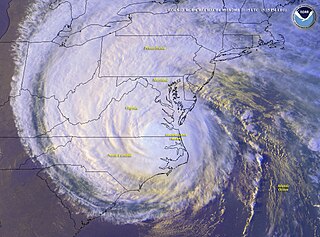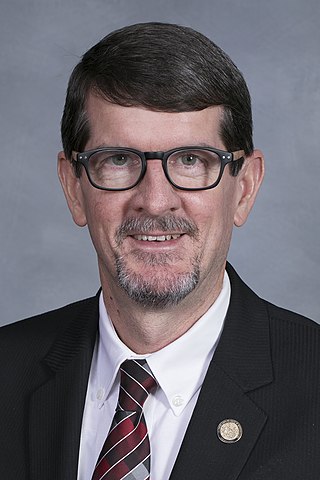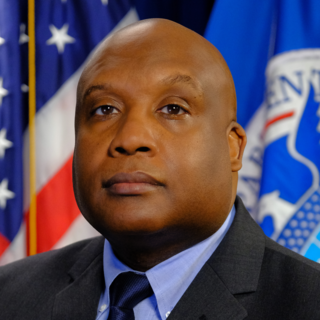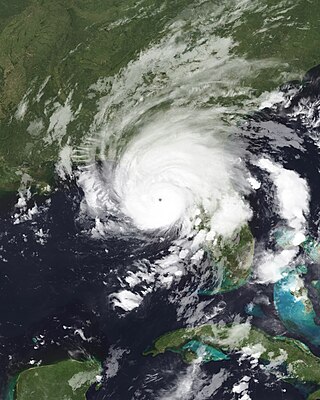
Federal Emergency Management Agency (FEMA) is an agency of the United States Department of Homeland Security (DHS),initially created under President Jimmy Carter by Presidential Reorganization Plan No. 3 of 1978 and implemented by two Executive Orders on April 1,1979. The agency's primary purpose is to coordinate the response to a disaster that has occurred in the United States and that overwhelms the resources of local and state authorities. The governor of the state in which the disaster occurs must declare a state of emergency and formally request from the President that FEMA and the federal government respond to the disaster. The only exception to the state's gubernatorial declaration requirement occurs when an emergency or disaster takes place on federal property or to a federal asset—for example,the 1995 bombing of the Alfred P. Murrah Federal Building in Oklahoma City,Oklahoma,or the Space Shuttle Columbia in the 2003 return-flight disaster.

Emergency management or disaster management is a science and a system charged with creating the framework within which communities reduce vulnerability to hazards and cope with disasters. Emergency management,despite its name,does not actually focus on the management of emergencies,which can be understood as minor events with limited impacts and are managed through the day-to-day functions of a community. Instead,emergency management focuses on the management of disasters,which are events that produce more impacts than a community can handle on its own. The management of disasters tends to require some combination of activity from individuals and households,organizations,local,and/or higher levels of government. Although many different terminologies exist globally,the activities of emergency management can be generally categorized into preparedness,response,mitigation,and recovery,although other terms such as disaster risk reduction and prevention are also common. The outcome of emergency management is to prevent disasters and where this is not possible,to reduce their harmful impacts.

Michael DeWayne Brown is an American attorney,and former government official who served as the administrator of the Federal Emergency Management Agency (FEMA) from 2003 to 2005. He joined FEMA as general counsel in 2001 and became deputy director the same year. Appointed in January 2003 by President George W. Bush to lead FEMA,Brown resigned in September 2005 following his controversial handling of Hurricane Katrina. Brown currently hosts a radio talk show on 630 KHOW in Denver,Colorado.

A FEMA Urban Search and Rescue Task Force is a team of individuals specializing in urban search and rescue,disaster recovery,and emergency triage and medicine. The teams are deployed to emergency and disaster sites within six hours of notification. The Federal Emergency Management Agency (FEMA) created the Task Force concept to provide support for large scale disasters in the United States. FEMA provides financial,technical and training support for the Task Forces as well as creating and verifying the standards of Task Force personnel and equipment.

Urban Search and Rescue Missouri Task Force 1 (MO-TF1) is a FEMA Urban Search and Rescue Task Force based in Boone County,Missouri. The task force is sponsored by the Boone County Fire Protection District and is designated as the Weapons of Mass Destruction (WMD) Response Team for the state of Missouri.

The effects of Hurricane Isabel in Delaware resulted in one of only thirteen presidential disaster declarations for the state of Delaware. Hurricane Isabel formed from a tropical wave on September 6,2003,in the tropical Atlantic Ocean. It moved northwestward,and within an environment of light wind shear and warm waters,it steadily strengthened to reach peak winds of 165 mph (266 km/h) on September 11. After fluctuating in intensity for four days,Isabel gradually weakened and made landfall on the Outer Banks of North Carolina with winds of 105 mph (169 km/h) on September 18. It quickly weakened over land and became extratropical over Pennsylvania the next day. The storm's center remained to the south and west of Delaware,and was about 175 miles (282 km) from the state at its closest approach. At that time,Isabel was a strong tropical storm located in central Virginia.

Andrew Velasquez III is the former Regional Administrator for the U.S. Department of Homeland Security's Federal Emergency Management Agency (FEMA),Region V. He coordinated preparedness,response,recovery,and mitigation activities for the states of Illinois,Indiana,Michigan,Minnesota,Ohio,and Wisconsin. Prior to his appointment as Region V administrator he served as Director of the Illinois Emergency Management Agency and Executive Director of Chicago's Office of Emergency Management and Communication.

Jared Evan Moskowitz is an American politician serving as the U.S. representative for Florida's 23rd congressional district since 2023. A member of the Democratic Party,Moskowitz served on the Broward County Commission from 2021 to 2022 and as director of the Florida Division of Emergency Management from 2019 to 2021. Before his appointment to the Florida Division of Emergency Management,he served in the Florida House of Representatives,representing the Coral Springs area in northern Broward County from 2012 to 2019.

Nancy L. Ward is the Director of the California Governor's Office of Emergency Services and Homeland Security Adviser to the Governor of California. Previously,Ward served in the Federal Emergency Management Agency (FEMA) as the Regional Administrator for Region IX from 2006 until 2014. During this time,from January until May of 2009,Ward was selected to serve as FEMA's Acting Administrator by her predecessor,R. David Paulison to serve in his place after he retired on January 21,2009. She returned to the position of Region IX Administrator in May 2009 after Craig Fugate was appointed as Federal Administrator.

William Craig Fugate is the former administrator of the Federal Emergency Management Agency. As director for the Florida Emergency Management Division,he oversaw the "Big 4 of '04" and as the administrator for the Federal Emergency Management Agency,he organized recovery efforts for a record of eighty-seven disasters in 2011.

The Waffle House Index is a metric named after the ubiquitous Southern US restaurant chain Waffle House known for its 24-hour,365-day service. Since this restaurant always remains open,it has given rise to an informal but useful metric to determine the severity of a storm and the likely scale of assistance required for disaster recovery. It was coined by former administrator Craig Fugate of the Federal Emergency Management Agency (FEMA). The metric is unofficially used by FEMA to inform disaster response.

Due to the common occurrence of hurricanes in the coastal state of North Carolina,hurricane recovery in North Carolina is a large component of the state's emergency management efforts. Recovery from these tremendous storms at the local and state level is a large part of the aftermath of a hurricane. Gavin Smith and Victor Flatt stated that "Disaster recovery remains the least understood aspect of hazards management,when assessed relative to preparedness,response,and hazard mitigation." Smith and Flatt also went on to state that the role of the states is even less understood. The review of the plans and policies that instruct recovery,agencies involved,funding processes and budgets,and the environmental effects of a hurricane creates a better understanding of how North Carolina recovers from a hurricane.

Robert J. Fenton Jr is an American governmental official who worked for the Federal Emergency Management Agency (FEMA) in 1996 and was appointed Regional Administrator for FEMA Region IX:Arizona,California,Hawaii,Nevada,and the Pacific Islands in July 2015. He had a leadership role in the development of the National Incident Management System and the National Response Framework.

William Brockmann Long is an American emergency manager who served as the Administrator of the Federal Emergency Management Agency (FEMA). He was appointed to the position by President Donald Trump in April 2017 and confirmed by the United States Senate in June 2017. He served until his resignation in March 2019,following criticism of his handling of the Hurricane Maria and an ethical complaint over using official vehicles.

Carson Henry Smith Jr. is an American politician who is a Republican member of the North Carolina House of Representatives,having been initially elected in 2018. He has represented the 16th district since 2019. Smith previously served as sheriff of Pender County,from 2002 until 2018.

Peter Thomas Gaynor is an American Certified Emergency Manager who served briefly as acting Secretary of Homeland Security under President Trump. Gaynor previously served as administrator of the Federal Emergency Management Agency (FEMA). He was appointed as Acting Administrator by President Donald Trump on March 8,2019,and became Administrator on January 16,2020.

The COVID-19 pandemic was confirmed to have reached the U.S. state of North Carolina on March 3,2020.

Mandy Krauthamer Cohen is an American internist,public health official,and healthcare executive serving as the director of the U.S. Centers for Disease Control and Prevention (CDC) since July 10,2023. She was previously the executive vice president at Aledade and chief executive officer of Aledade Care Solution,a healthcare company.

Erik Adrian Hooks is an American public safety official who is currently serving as the deputy administrator of the Federal Emergency Management Agency. He previously served as secretary of the North Carolina Department of Public Safety from January 2017 to August 2021.

Hurricane Idalia was a powerful and destructive Category 4 hurricane that caused significant damage across parts of the southeastern United States,especially in North Florida,in late August 2023. The ninth named storm,third hurricane,and second major hurricane of the 2023 Atlantic hurricane season,Idalia formed from a low-pressure area that crossed Central America from the eastern Pacific Ocean. Gradual development ensued as it meandered in the western part of the Caribbean Sea;the system was upgraded to a tropical depression on August 26,2023,and strengthened into a tropical storm a day later,receiving the name Idalia. It traversed the Gulf of Mexico where it underwent rapid intensification,briefly becoming a Category 4 hurricane prior to making landfall in the Big Bend region of Florida at Category 3 strength on August 30. Idalia remained a hurricane as it moved through Northern Florida and crossed into Southeast Georgia;it then pushed into the Carolinas as a tropical storm. On August 31,Idalia emerged into the Atlantic,where it transitioned into a post-tropical cyclone that same day. Later,it passed south of Bermuda,made a counterclockwise loop,then meandered off the coast of Nova Scotia while winding down.



















